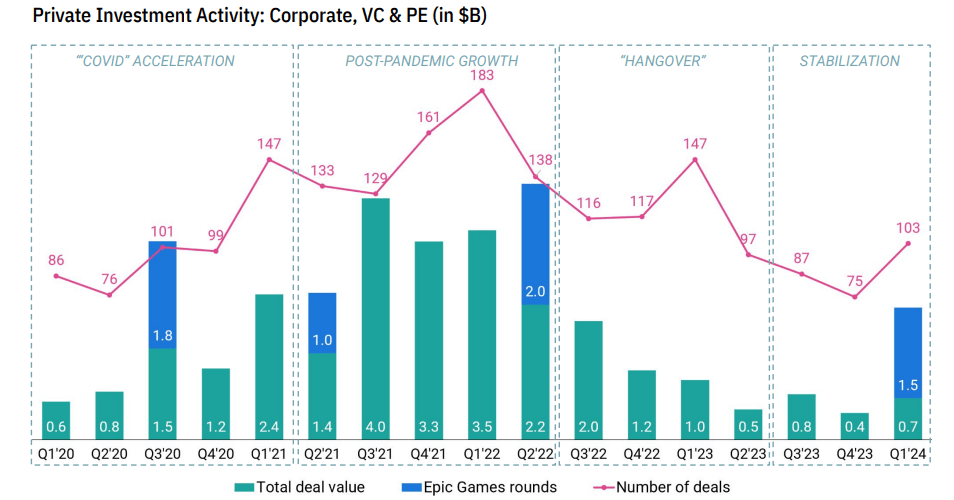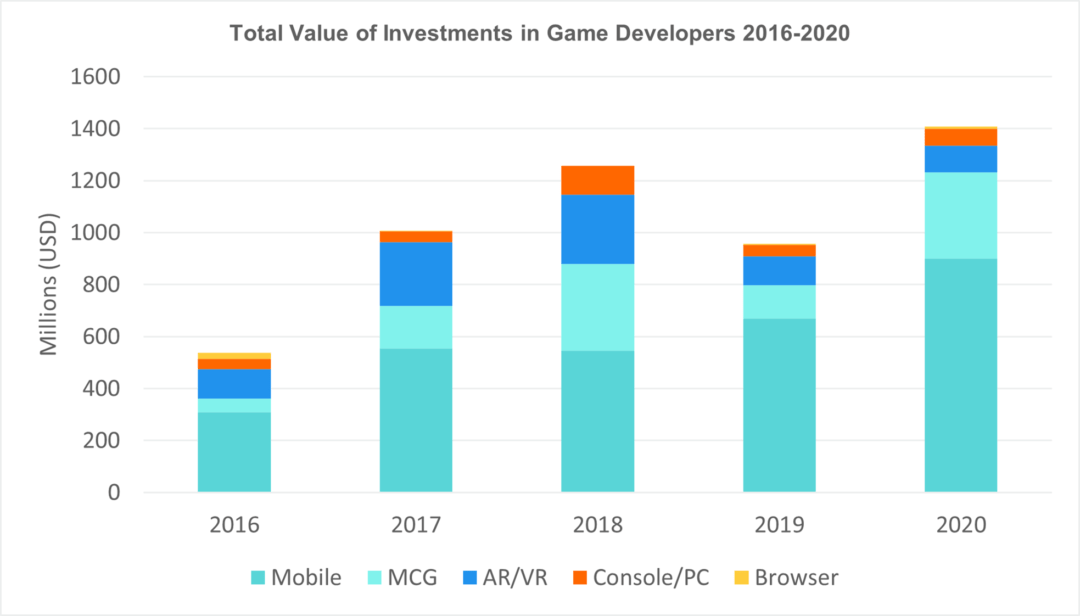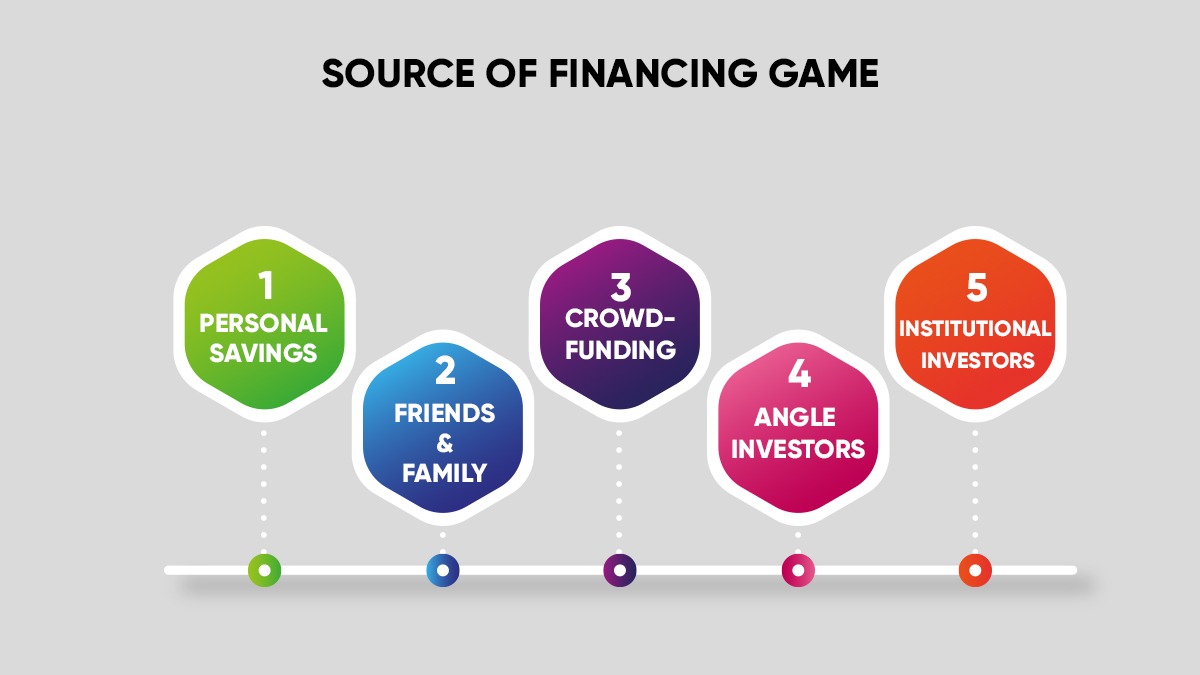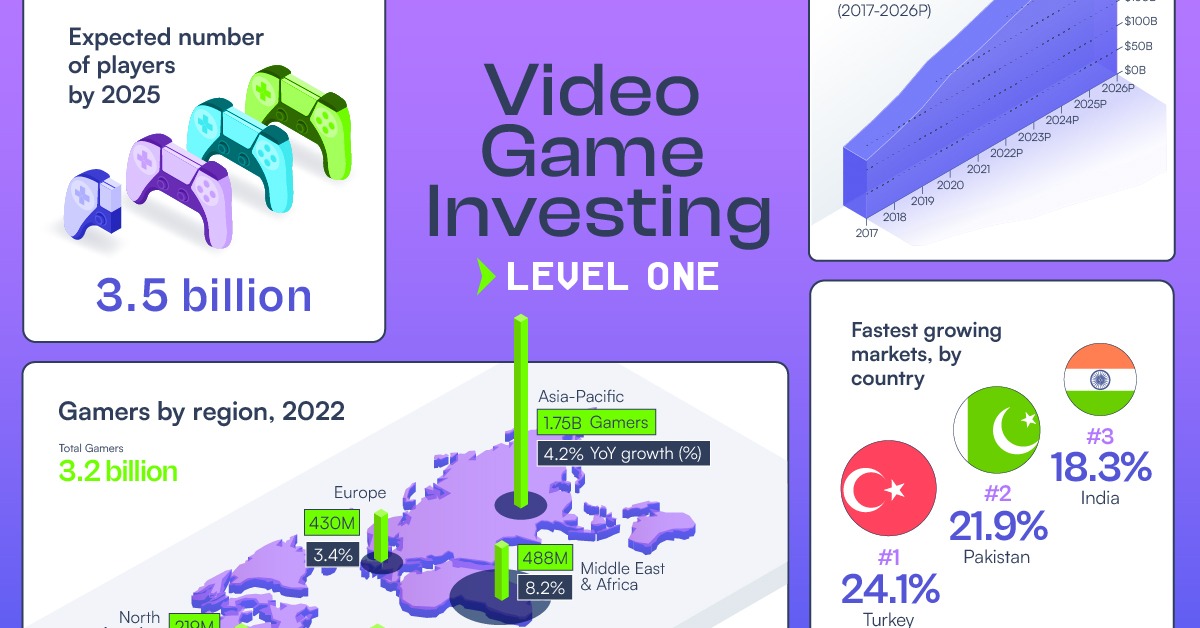Introduction to Game Development Investments

The game development industry has come a long way from the pixelated simplicity of the ’80s to the breathtaking, immersive worlds we explore today. With each passing year, the gaming industry seems to break its own records, not just in terms of sales but also in the sheer quality and diversity of games. According to the latest market research, the global gaming market is projected to reach a whopping $200 billion by 2024, fueled by innovations in technology and an ever-growing player base. But what’s driving this explosive growth, and why should investors care?
Investments in game development are more crucial than ever. They not only provide the financial muscle necessary to bring ambitious projects to life but also foster innovation in an industry that thrives on creativity. Whether it’s through venture capital, angel investors, crowdfunding, or traditional publisher funding, financial support can make the difference between a game that redefines genres and one that never sees the light of day.
The purpose of this article is to shine a light on the vibrant world of game development investments. We’ll explore the current state of the industry, delve into the various types of investments, and highlight the emerging trends that are set to shape the future of gaming. Along the way, we’ll share insights and stories from successful projects, providing a roadmap for potential investors looking to make their mark in this exciting field. So, grab your controller—or your checkbook—and let’s dive into the world of game development investments!
The Current State of the Game Development Industry

Market Size and Revenue Statistics
In recent years, the gaming industry has consistently outperformed other entertainment sectors, including movies and music. In 2023 alone, video game revenues surpassed $180 billion, with projections indicating even higher figures for 2024. This growth is fueled by several key factors, including the increasing accessibility of gaming platforms, the proliferation of smartphones, and the rise of digital distribution channels. Mobile gaming, in particular, has been a significant contributor, accounting for more than half of the total market revenue.
Key Trends in the Industry
Several trends are currently shaping the game development landscape, each offering unique opportunities and challenges:
- Mobile Gaming: With the ubiquity of smartphones, mobile gaming has become a dominant force in the industry. Games like PUBG Mobile and Genshin Impact have garnered millions of players worldwide, demonstrating the potential of mobile platforms to reach a vast audience.
- eSports: Competitive gaming, or eSports, has exploded in popularity, drawing massive viewership numbers and substantial investments. Tournaments for games like League of Legends and Dota 2 now offer prize pools in the millions, attracting professional players and teams from around the globe.
- VR/AR: Virtual Reality (VR) and Augmented Reality (AR) technologies are revolutionizing the gaming experience. Titles like Half-Life: Alyx and Pokémon GO showcase the immersive potential of these platforms, pushing the boundaries of what’s possible in interactive entertainment.
Major Players and Emerging Studios
The gaming industry is populated by a mix of established giants and innovative newcomers. Companies like Tencent, Sony, and Microsoft continue to dominate the market, leveraging their vast resources to produce blockbuster titles and cutting-edge hardware. Sony’s PlayStation and Microsoft’s Xbox consoles remain at the forefront of the gaming ecosystem, while Tencent’s investments and acquisitions have made it a powerhouse in both mobile and PC gaming.
Meanwhile, emerging studios are making waves with fresh, creative content. Indie developers, often funded through platforms like Kickstarter, are bringing unique and innovative games to the forefront. Games like Hades by Supergiant Games and Celeste by Matt Makes Games have received critical acclaim and commercial success, highlighting the growing influence of independent creators.
Types of Investments in Game Development

Venture Capital (VC) Funding
Venture capital has been a driving force behind some of the most successful game companies. VC firms provide substantial funding to startups and early-stage companies with high growth potential. These investments are typically made in exchange for equity, giving VCs a stake in the company’s future success.
Prominent VC firms like Andreessen Horowitz and Sequoia Capital have made significant investments in the gaming industry. For instance, Andreessen Horowitz’s investment in Roblox, a platform that allows users to create and share games, played a crucial role in its meteoric rise. Such funding not only provides the financial resources needed to develop and market games but also offers strategic guidance and networking opportunities.
Angel Investors
Angel investors are often the unsung heroes of the game development world. These individuals typically provide early-stage funding to startups, bridging the gap between the initial concept and securing more substantial investments. Unlike VCs, angel investors often invest their own money and may offer more flexible terms.
Notable angel investors like Tim Sweeney, the founder of Epic Games, have made significant contributions to the industry. Sweeney’s investments in various startups have helped foster innovation and bring unique gaming experiences to market. Angel investments can be crucial for indie developers who need early funding to get their projects off the ground.
Crowdfunding Platforms
Crowdfunding has democratized game development, allowing developers to pitch their ideas directly to the public. Platforms like Kickstarter and Indiegogo enable creators to raise funds from backers who believe in their projects. This model not only provides financial support but also builds a community of dedicated fans.
Success stories like Shovel Knight and Undertale highlight the potential of crowdfunding. These games raised significant funds from passionate backers and went on to achieve critical and commercial success. However, running a successful crowdfunding campaign requires careful planning, compelling storytelling, and active engagement with the community.
Publisher Funding
Traditional publisher funding remains a vital source of financing for many game developers. Publishers provide the financial resources needed to develop and market games, often in exchange for a share of the profits and some level of creative control. This model has been the backbone of the industry for decades, supporting the creation of numerous blockbuster titles.
Major publishers like Electronic Arts and Activision Blizzard have a long history of funding successful games. While working with a publisher can mean giving up some creative freedom, it also provides access to extensive marketing and distribution networks, which can be crucial for a game’s success.
Government Grants and Subsidies
Several governments recognize the economic and cultural value of the gaming industry and offer grants and subsidies to support its growth. These programs can significantly reduce the financial risks associated with game development and encourage innovation.
Regions like Quebec, Canada are renowned for their generous tax incentives and support for game developers. Programs like the Canada Media Fund provide substantial funding to help developers create original content. These grants can be a lifeline for small studios and independent developers, allowing them to pursue ambitious projects without the financial burden.
Venture Capital and Game Development
Role of VCs in the Gaming Industry
Venture capital (VC) has been instrumental in shaping the landscape of the gaming industry. VCs provide the substantial financial backing that allows game developers to push the boundaries of technology and creativity. By investing in promising startups and early-stage companies, VCs not only supply the necessary capital to develop and launch games but also bring strategic expertise, industry connections, and business acumen to the table. This symbiotic relationship enables developers to scale rapidly, reach wider audiences, and innovate in ways that would be impossible with limited funding.
VC involvement often extends beyond mere financial investment. VCs typically offer mentorship, strategic advice, and access to a network of industry contacts, helping game developers navigate the complex world of gaming. This can include assistance with marketing strategies, user acquisition, and even introductions to potential partners or acquirers. In return, VCs gain equity in these companies, allowing them to share in the success and growth of the businesses they support.
Prominent VC Firms Investing in Game Development
Several VC firms have recognized the immense potential of the gaming industry and have actively invested in game development companies. Here are a few notable ones:
- Andreessen Horowitz: This Silicon Valley-based firm, also known as a16z, has made significant investments in various sectors, including gaming. Their portfolio includes investments in companies like Roblox and Riot Games.
- Sequoia Capital: A heavyweight in the venture capital world, Sequoia has backed some of the most successful tech companies. In the gaming sector, they’ve invested in companies like Unity Technologies, a leading platform for creating and operating interactive, real-time 3D content.
- Benchmark Capital: Known for its early-stage investments, Benchmark has supported companies like Zynga, which became a major player in social gaming with hits like FarmVille.
- Kleiner Perkins: This firm has a diverse investment portfolio, including several high-profile gaming companies such as Epic Games, the creator of the wildly popular Fortnite.
Case Studies of Successful VC-Backed Game Companies
Roblox
Roblox is a prime example of how VC funding can propel a company to new heights. Initially funded by Andreessen Horowitz, Roblox has grown into a platform that allows users to create, share, and play games created by other users. The company went public in March 2021 with a valuation of $38 billion. The platform’s success can be attributed to its unique user-generated content model, which encourages creativity and community engagement. Today, Roblox boasts millions of active users and continues to expand its influence in the gaming industry.
Unity Technologies
Unity Technologies, backed by Sequoia Capital, has become one of the most widely used game development platforms in the world. Unity’s engine powers a vast number of games across various platforms, from mobile to console to VR/AR. The flexibility and robustness of Unity’s tools have made it a favorite among developers, both big and small. The company’s IPO in September 2020 valued it at over $13 billion, highlighting the significant impact of VC investment in scaling and solidifying its market position.
Epic Games
Epic Games, the creator of the blockbuster game Fortnite, has received funding from several VCs, including Kleiner Perkins. Fortnite’s success has been nothing short of phenomenal, redefining the battle royale genre and establishing a new standard for live service games. The game’s innovative approach to in-game events and monetization has attracted a massive player base and generated billions in revenue. Beyond Fortnite, Epic Games has also made significant strides with its Unreal Engine, a powerful tool for game development used by studios worldwide.
Angel Investors: The Silent Contributors
Definition and Role of Angel Investors in Game Development
Angel investors are individuals who provide capital to startups and early-stage companies, often in exchange for equity or convertible debt. Unlike venture capitalists, who typically invest large sums of pooled funds from various sources, angel investors usually invest their own money. This personal investment often means that angels are more willing to take risks on innovative and unproven ideas, making them crucial players in the early stages of game development.
In the gaming industry, angel investors fill a critical gap by offering the financial support needed to turn a concept into a prototype or a small-scale launch. Their investments can help cover essential expenses such as salaries, software licenses, marketing, and other development costs. Beyond financial backing, many angel investors bring valuable industry experience and mentorship, guiding fledgling developers through the complexities of game creation and business development.
Notable Angel Investors and Their Impact
Several high-profile angel investors have made significant contributions to the game development industry, helping to launch successful games and studios:
- Tim Sweeney: Founder of Epic Games, Sweeney has used his wealth and industry knowledge to support various gaming startups. His investments often focus on innovative projects that push the boundaries of technology and game design.
- Chris Lee: A former executive at Media Molecule, Lee has invested in multiple indie game developers. His support has been instrumental in bringing unique and creative games to the market, often emphasizing narrative-driven experiences.
- Paul Bragiel: A prolific angel investor with a diverse portfolio, Bragiel has funded several gaming startups. His investments are known for targeting early-stage companies with high potential for growth and innovation.
Examples of Successful Projects Funded by Angel Investors
Supergiant Games
Supergiant Games, the studio behind critically acclaimed titles like Bastion, Transistor, and Hades, benefited significantly from early angel investment. Angel investors provided the initial capital that allowed the founders to leave their jobs and focus full-time on game development. This early support was crucial in enabling the studio to create Bastion, which not only won numerous awards but also established Supergiant Games as a powerhouse in the indie game scene.
Campo Santo
Campo Santo, known for the narrative-driven adventure game Firewatch, received early-stage funding from angel investors. This support helped the small team develop and polish their unique game, which blends captivating storytelling with beautiful visuals. Firewatch went on to become a commercial and critical success, highlighting the significant impact that angel investors can have on bringing innovative projects to life.
Playdead
Playdead, the Danish studio behind the acclaimed games Limbo and Inside, also benefited from angel investment. Early financial backing allowed the studio to refine their minimalist yet profoundly impactful games, both of which have received numerous awards and accolades for their artistry and design. These successes underscore the importance of angel investors in nurturing creative talent and unique game experiences.
Crowdfunding: Empowering Indie Developers

Overview of Crowdfunding Platforms
Crowdfunding has revolutionized the way indie developers fund their projects, offering a direct line of support from passionate gamers. Platforms like Kickstarter and Indiegogo have become essential tools for developers looking to bypass traditional funding routes and retain creative control over their games.
- Kickstarter: Launched in 2009, Kickstarter is one of the most popular crowdfunding platforms, especially for creative projects like video games. Developers pitch their ideas to the public, setting a funding goal and offering various rewards for backers. If the funding goal is met within a specified timeframe, the project receives the funds; if not, no money is collected.
- Indiegogo: Founded in 2008, Indiegogo offers a bit more flexibility compared to Kickstarter. Developers can choose between fixed funding (similar to Kickstarter’s all-or-nothing approach) and flexible funding (where they keep whatever money they raise, even if the goal isn’t met). This platform is known for supporting a wide range of projects, including many innovative and niche games.
Success Stories and Notable Failures
Success Stories
- Shovel Knight: One of the most celebrated crowdfunding successes, Shovel Knight by Yacht Club Games raised over $300,000 on Kickstarter in 2013. The retro-style platformer received widespread acclaim for its polished gameplay and charming aesthetic, proving that crowdfunded games can compete with traditionally funded titles.
- Undertale: Toby Fox’s Undertale is another standout success. The quirky RPG raised nearly $52,000 on Kickstarter in 2013, far exceeding its modest $5,000 goal. Undertale went on to become a cultural phenomenon, praised for its innovative mechanics and heartfelt storytelling.
- Bloodstained: Ritual of the Night: Created by Koji Igarashi, a veteran of the Castlevania series, Bloodstained raised over $5.5 million on Kickstarter in 2015. The game successfully delivered on its promise of a spiritual successor to Castlevania, earning positive reviews and demonstrating the potential of crowdfunding for high-profile projects.
Notable Failures
- Yogventures: One of the most infamous crowdfunding failures, Yogventures raised over $500,000 on Kickstarter in 2012. The ambitious open-world game from the Yogscast team fell apart due to poor project management and unrealistic goals, leaving backers disappointed and without refunds.
- Mighty No. 9: Although it raised over $4 million on Kickstarter, Mighty No. 9, a spiritual successor to Mega Man by Keiji Inafune, faced numerous delays and was criticized for its mediocre graphics and gameplay. The game’s failure to meet backer expectations served as a cautionary tale about overpromising and underdelivering.
Best Practices for Running a Successful Crowdfunding Campaign
- Clear and Compelling Pitch: Your campaign page should clearly communicate your game’s concept, goals, and why it stands out. Use engaging visuals, detailed descriptions, and a captivating video to draw in potential backers.
- Realistic Funding Goal: Set a funding goal that accurately reflects the costs of developing your game but remains attainable. Breaking down your budget can help backers understand where their money is going and why it’s necessary.
- Regular Updates: Keep your backers informed with regular updates on your project’s progress. Transparency builds trust and maintains enthusiasm throughout the development process.
- Engaging Rewards: Offer a range of rewards that cater to different levels of backer commitment. Digital downloads, exclusive in-game content, physical merchandise, and even early access can incentivize support. Ensure that reward tiers are well-planned to avoid overcommitting.
- Community Engagement: Building a community around your game is crucial. Engage with potential backers through social media, forums, and your campaign’s comment section. Responding to questions and feedback can foster a loyal and supportive community.
- Showcase a Prototype or Demo: If possible, provide a playable demo or prototype to give backers a taste of what they can expect. This can significantly increase confidence in your project.
